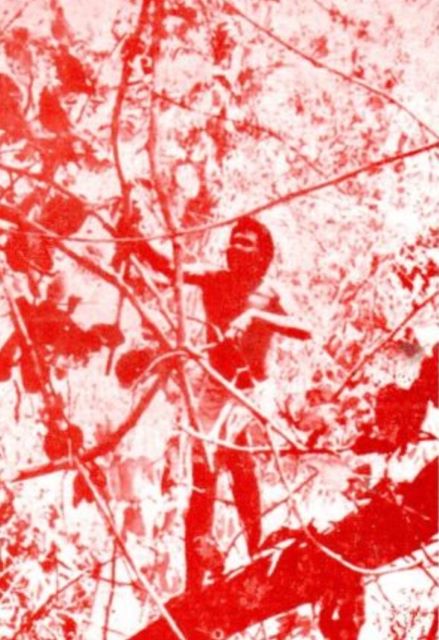Nirmala was celebrated by a local official in India’s Chhattisgarh state for being the first Birhor girl to complete class 12. A photo that accompanies the Times of India news story last week shows the District Collector for the Jashpur District, Nileshkumar Mahadev Kshirsagar, congratulating the girl in a ceremonial setting.

Nirmala says she hopes to continue her education at a college. Her parents, like many Birhor, work as day laborers and gather forest products for a living, particularly leaves from the sal trees. Her father, Kunwar Ram, was immensely proud of his daughter and said that she should “follow her dreams.”
Nirmala credits the support of her father for her success so far. He has encouraged her to get an education. She said that her parents “want to send me to college and I will definitely fulfill their dream by studying hard. It is a huge thing for people like them to even think of me going [to] college.” The family lives in Jhargaon, a village of 1,100 people in the Jashpur District of Chhattisgarh.
The reporter quoted the comments of the father, who said, in part, “I am proud of my daughter’s success and she can study further as much as she wants.” But Jageshwar Singh, the chief of the local Birhor community, explained that the family’s support for the girl is not shared by many others, who are opposed to Nirmala going to school.

Confirming that she is the first Birhor girl to complete her general schooling, he explained that the community is still generally opposed to girls getting educated. “The tribal people are highly superstitious regarding girls’ education,” he said. They pressured the family to remove the girl from school and though the parents wavered at one point, they swung back to give her their support.
The reporter concluded by quoting the supportive local chief again: “I try my best to convince people of my tribe to shed superstition and let girls study and become self-reliant.”
This Times of India article reaffirms and punctuates the point made in last week’s report in this website about gender equality among the Batek: that the peaceful societies vary widely in their attitudes toward women’s equality. Some, like the Batek, treat women as equals while others like this Birhor community do not—though that appears to be changing.